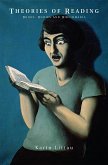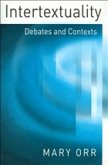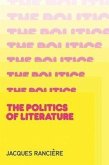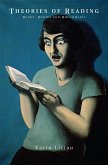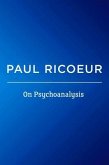Although psychoanalytic criticism has long been established as a practice in its own right, dialogue between the clinical and aesthetic has so far been perfunctory. This innovative book sets out to show in detail that there is a poetics of the unconscious equally at work in both domains, the critical potential of which has been missed by both sides. In Part I, Wright focuses on the discoveries of Freudian psychoanalysis and demonstrates how the fundamental fantasies emerging in clinical practice are uncannily shared by works of art. This devotion of the unconscious to its phantasmic history is illustrated with examples from Freud, surrealist painting and Julia Kristeva's work on melancholia. In Part II, the focus shifts to Lacan's view of language as a means of agitating the unconscious of the reader. Part III takes examples from the rhetoric of clinical discourse, showing how practitioners are aware of a range of poetic meanings for both patient and analyst. The three parts demonstrate that all language is inescapably figural, as it betrays the operations of desire and fantasy in both aesthetic and clinical discourse. This book is suitable for second- and third-year undergraduate students and above in literature and literary theory, feminism and gender studies, and psychoanalysis.
Hinweis: Dieser Artikel kann nur an eine deutsche Lieferadresse ausgeliefert werden.
Hinweis: Dieser Artikel kann nur an eine deutsche Lieferadresse ausgeliefert werden.
"The extraordinary achievement of Wright's book is that it invertsthe standard psychoanalytic approach to art, which consists inbringing to light the unconscious pathological complexes thatunderlie the work of art - for Wright, and in the best Lacaniantradition, it is the poetics, the rhetorical strategies of languageitself, that provide the key to the formations of the unconscious.The consequent deployment of this insight makes the book an instantclassic that will stay around for decades." Slavoj Zizek
"Elizabeth Wright provides a "how-to" handbook on readingliterary texts through psychoanalytic theory. She carefully andintelligently presents a compact description of a psychoanalyticreading, defines "discourse", as well as the "clinical case". Theseare the three core concepts for any understanding of apsychoanalytic approach to literature and language. They are wellillustrated by insightful and comprehensible examples fromShakespeare to the German expressionist Alfred Kubin and theAmerican writer Robert Coover and by examples from pyschoanalystsJulia Kristeva, Joyce McDougall and Wilfred Bion. An indispensableguide for student and critic alike." Sander Gilman
"With an acute eye Speaking Desires seamlessly weavestogether psychoanalytic theory and literary criticism as only oneequally at ease in both discourses can do." PsychoanalyticStudies
"Elizabeth Wright provides a "how-to" handbook on readingliterary texts through psychoanalytic theory. She carefully andintelligently presents a compact description of a psychoanalyticreading, defines "discourse", as well as the "clinical case". Theseare the three core concepts for any understanding of apsychoanalytic approach to literature and language. They are wellillustrated by insightful and comprehensible examples fromShakespeare to the German expressionist Alfred Kubin and theAmerican writer Robert Coover and by examples from pyschoanalystsJulia Kristeva, Joyce McDougall and Wilfred Bion. An indispensableguide for student and critic alike." Sander Gilman
"With an acute eye Speaking Desires seamlessly weavestogether psychoanalytic theory and literary criticism as only oneequally at ease in both discourses can do." PsychoanalyticStudies



